Kwanzaa takes place between December 26 and January 1, with each day aligning to a particular theme: unity, self-determination, collective work, cooperative economics, purpose, creativity, and faith.
Many of the icons and symbols of the holiday have been collected from different parts of the African diaspora (like much of pan-African imagery). However, the words (like the daily themes) used are in Swahili because there are millions of speakers, and the language is easily read in English.
In observance of the week of festivities, we’ve compiled a list of seven must-read books by and about Black women that correlate with the different days of Kwanzaa. These women may not celebrate the holiday personally, but their stories reflect themes and historical legacy of the holiday.
Umoja (Unity)
The Three Mothers: How the Mothers of Martin Luther King, Jr., Malcolm X, and James Baldwin Shaped a Nation by Anna Malaika Tubbs
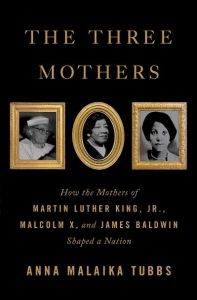
(Image: Flatiron Books.)
The theme for the first day is to strive for and maintain unity in the family, community, nation, and race. The Three Mothers was chosen because this book focuses on what shaped these Civil Rights leaders and because the work put in by these mothers would lead their sons to explore ideas of different elements of unity in their work.
The Three Mothers gives the mothers of Malcolm X, Martin Luther King, Jr., and James Baldwin their due. In reading (the George Washington biography) You Never Forget Your First by Alexis Cole, she pushed back against the idea that the women in the lives of “great men” were secondary and that their influence from mothers to friendships are owed more scholarship. Tubbs examines the world Berdis Baldwin, Alberta, King, and Louise Little grew up in and how that influenced the way they raised their children.
Kujichagulia (Self-Determination)
Redefining Realness: My Path to Womanhood, Identity, Love & So Much More by Janet Mock
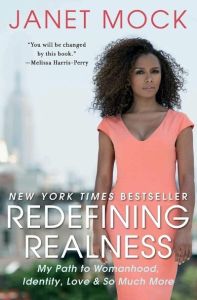
(Image: Atria Books.)
Maybe this is too on the nose, but nothing speaks more to this than the resilience of LGBTQ+ Black women, and for this, we choose the writer/director/producer, journalist, and queer icon Janet Mock. In Redefining Realness, the memoir reflects on her growing up as a multi-racial, poor, and trans child (then woman) through the ’90s and early ’00s.
Ujima (Collective Work and Responsibility)
When They Call You a Terrorist: A Black Lives Matter Memoir by Patrisse Khan-Cullors and Asha Bandele
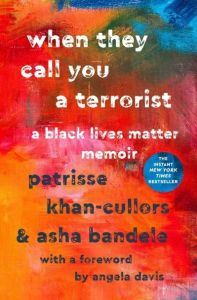
(Image: St. Martin’s Griffin.)
This day is specifically highlighted as a way of addressing community issues and solving them together. There are a lot of Black women-led collectives and movements to address issues, but we chose one of the more recent women building on this knowledge and history. This memoir shows how the personal is political in following what events in Khan-Cullors’ life culminated in her (with Alicia Garza and Opal Tometi) to outline goals for the Black Lives Matter movement.
I think a lot of it has been lost to the discourse (especially before 2020), but what I think is most valuable is that their work builds on the women before them. This includes not leaving queer, disabled, and poor women out of the conversation. Their approaches (of no hierarchy or “face” to the movement) have had varying results, but the reasonings became much clearer with this one read. (Also, it is one of my favorite non-fiction books this year.)
Ujamaa (Cooperative Economics)
Until I Am Free: Fannie Lou Hamer’s Enduring Message to America by Keisha N. Blain
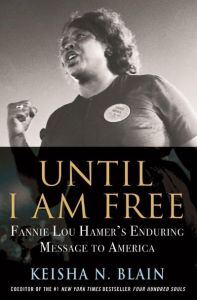
(Image: Beacon Press.)
This was kind of a tough one because its meaning is the old-fashioned belief that Black capitalism will save us. So instead, we widened the scope to be about contributors to class consciousness and class struggle. Here there are so many women worth discussing with one being the Fannie Lee Hammer. While theory and politics are important, Hammer brought the struggles of working-class women to the forefront of the Civil Rights movement.
Nia (Purpose)
Unbound: My Story of Liberation and the Birth of the Me Too Movement by Tarana Burke
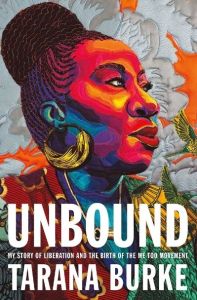
(Image: Flatiron Books: An Oprah Book.)
My instinct was to name Becoming by Michelle Obama. While you should read it, there are also many newer books that came out this year showing how high-profile Black women have helped call attention to serious issues by being vulnerable about their traumas — Believing: Our Thirty-Year Journey to End Gender Violence by Anita Hill and Unbound by Tarana Burke.
Founder of the #MeToo movement Tarana Burke unpacks the steps it took to get to the point where she could speak up against sexual assault and how the movement emboldened other survivors of abuse to be courageous, too.
Kuumba (Creativity)
Please Don’t Sit on My Bed in Your Outside Clothes by Pheobe Robinson
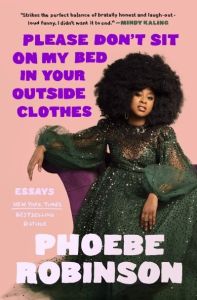
(Image: Tiny Reparations Books.)
Many books on this list are heavy, so of all the many types of artists, we choose comedian and hostess Phoebe Robinson. She’s written a few bangers, with Please Don’t Sit on My Bed in Your Outside Clothes being the newest title. This memoir and series of personal essays by the actress takes a jab at many of our newer modern issues with laugh-out-loud stories that will also leave you thinking about the subjects she discusses for days to come.
Imani (Faith)
She Came to Slay: The Life and Times of Harriet Tubman by Erica Armstrong Dunbar
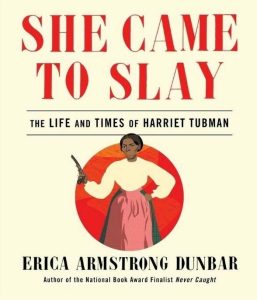
(Image: 37 Ink.)
It may appear that there is some contradiction to highlight a woman whose spiritual guidance was shaped by Christianity (as well as her nickname “Moses”) considering one of Kwanzaa’s original goals was to separate from religion. But when speaking on faith, no Black woman more clearly comes to mind for me than Harriet Tubman.
She Came to Slay uses pop cultural references for chapter titles and beautifully illustrated prints within the book to highlight her life’s work and achievements. In addition to looking at Tubman’s work, Dunbar explores how Tubman worked with and clashed with fellow abolitionists like Fredrick Douglass and John Brown. The story doesn’t end with her achievements leading up to and after the Civil War but also looks at her life after the 13th Amendment and how she continued to advocate for herself and others.
(Image: Flatiron Books: An Oprah Book, Flatiron Books: An Oprah Book, Flatiron Books, and RODNAE on Pexels.)
The Mary Sue may earn an affiliate commission on products and services purchased through links.
Want more stories like this? Become a subscriber and support the site!
—The Mary Sue has a strict comment policy that forbids, but is not limited to, personal insults toward anyone, hate speech, and trolling.—



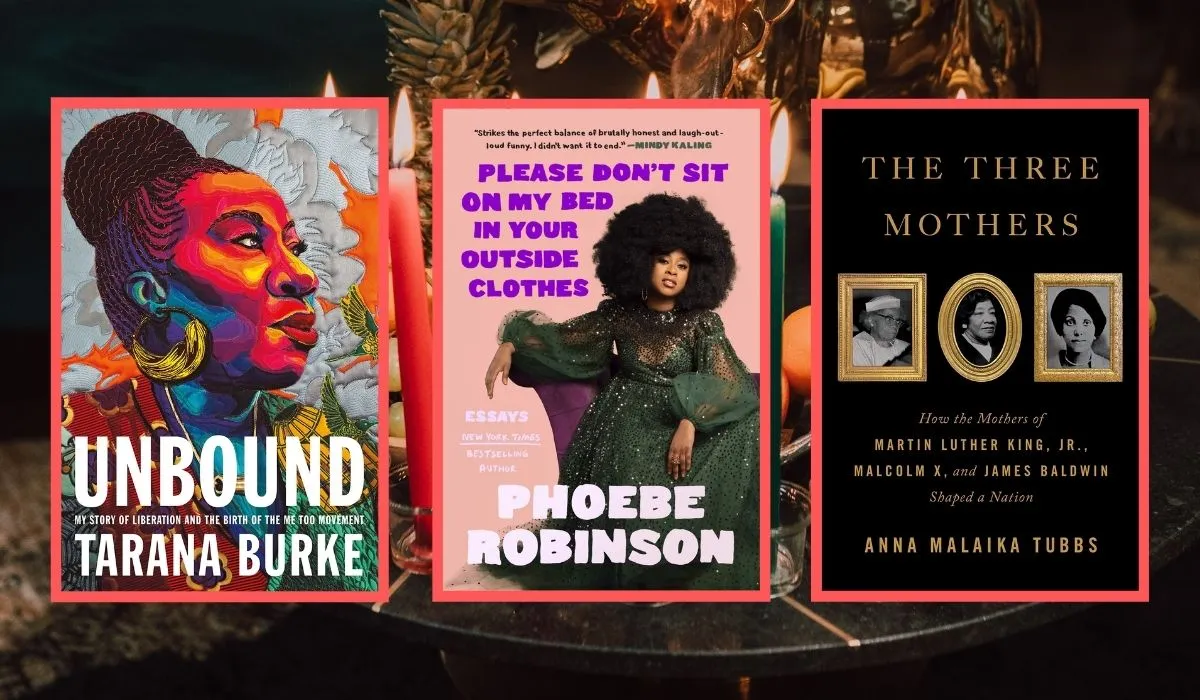






Published: Dec 27, 2021 11:27 am